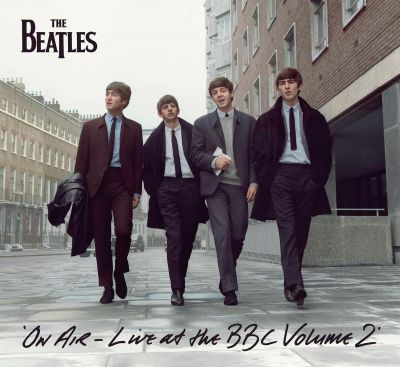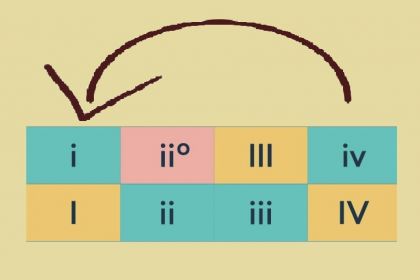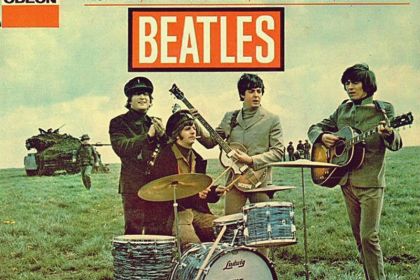Music Theory
Beatles' most used musical keys

Live at the BBC Vol. 2 CD cover
In the realm of pop music, songwriters often rely on the 24 musical keys to create harmonious and captivating compositions. These keys play a crucial role in evoking different moods and engaging listeners with their deep perception of lyrics. By utilizing a combination of the 12 major and 12 minor keys—along with various compositional techniques like modulations—songwriters can craft songs that resonate with their intended emotions.
While all major and minor keys hold a certain level of equivalence, songs can be transposed from one key to another while preserving the melody and harmonic chord progressions. Performers often employ this practice to align the melody with their vocal range. However, these keys differ in their impact on the listener, each possessing unique characteristics. For instance, B minor is commonly regarded as the "saddest" key by many composers.
A thorough harmonic analysis of the extensive discography of the Beatles reveals a distinct inclination towards major keys, which are commonly known as the Ionian mode in music literature. Out of the 167 tracks penned by the band across their 13 official albums, we have identified 55 songs that employ Ionian chord progressions.
Furthermore, our research has unearthed approximately 80 Beatles songs that adhere to the canons of tonal theory, featuring chord progressions derived from six diatonic modes: Ionian, Dorian, Phrygian, Lydian, Mixolydian, and Aeolian. Among these, the Ionian mode accounts for about 70 percent of all the Beatles' tonal-theory-oriented tracks.
Among the various musical keys employed by The Beatles, G major emerges as the most frequently utilized, appearing in 14 tracks. These songs include:
- All Together Now
- All You Need Is Love
- Good Night
- I Feel Fine
- I Should Have Known Better
- I Want To Hold Your Hand
- It's All Too Much
- Maggie Mae
- Not A Second Time
- Paperback Writer
- Rain
- Tell Me What You See
- Two Of Us
- You Can't Do That
The Beatles also favored E major which featured in 11 tracks including:
- All I've Got To Do
- And Your Bird Can Sing
- Ask Me Why
- The Ballad Of John And Yoko
- Don't Let Me Down
- I Saw Her Standing There
- Nowhere Man
- Octopus's Garden
- There's A Place
- You're Going To Lose That Girl
- What Goes On
Furthermore, the key of C major played a prominent role in 8 Beatles songs:
- Baby You're A Rich Man
- Can't Buy Me Love
- Carry That Weight
- Don't Pass Me By
- Getting Better
- Let It Be
- Love Me Do
- Misery
The key of A major appears in 6 tracks:
- I've Just Seen A Face
- I Need You
- In My Life
- Lucy In The Sky With Diamonds
- Only A Northern Song
- She's A Woman
The Beatles' affinity for D major is evident in 5 tracks:
- Any Time At All
- Drive My Car
- This Boy
- What You're Doing
- Why Don't We Do It In The Road?
There are also 4 songs in F major considered the calmest musical key:
Additionally, the following songs were composed in other major keys, occurring once each in The Beatles' repertoire:
- A♭ Ionian: Across The Universe
- E♭ Ionian: The Inner Light
- B♭ Ionian: Ob-La-Di, Ob-La-Da
- B Ionian: One After 909
- F♯ Ionian: Yellow Submarine
Explore how The Beatles use other musical modes in our articles:
- Beatles songs featuring Lydian mode
- 9 Beatles songs that combine harmonic major with Ionian mode
- Beatles songs with Dorian mode
- Beatles songs with harmonic minor and Aeolian modes
- Things We Said Today: the only Beatles song featuring Phrygian mode
- Golden Slumbers: lyrical origins of the famous Beatles lullaby
- Picardy third: cadence for a happy ending in classical music and popular songs
- Beatles songs composed with just three primary chords
- 50 Beatles songs using Ionian mode
Discover more songs composed in Ionian major mode and check out their harmonic analysis in the following articles:
- 6 songs to unpack Ionian mode and the major scale
- 9 Beatles songs that combine harmonic major with Ionian mode
- Longfellow Serenade and the fireside poet that kindled Neil Diamond's song
- Wildwood Weed: the cheeky ganja farmers song that got banned
- Sugaree: Jerry Garcia's song referencing his lyricist's criminal past
- D'yer Mak'er: meaning of Led Zeppelin's most controversial song
- Seven Seas of Rhye: song of imaginary land brought to life by Ionian and Mixolydian modes
- Coal Miner's Daughter was forced to remove a third of the lyrics from her autobiographical song
- I Wanna Be Sedated: pure classical harmony cementing the Ramones' hit in punk rock history
- Hasta Mañana: the origins of the best ABBA ballad



